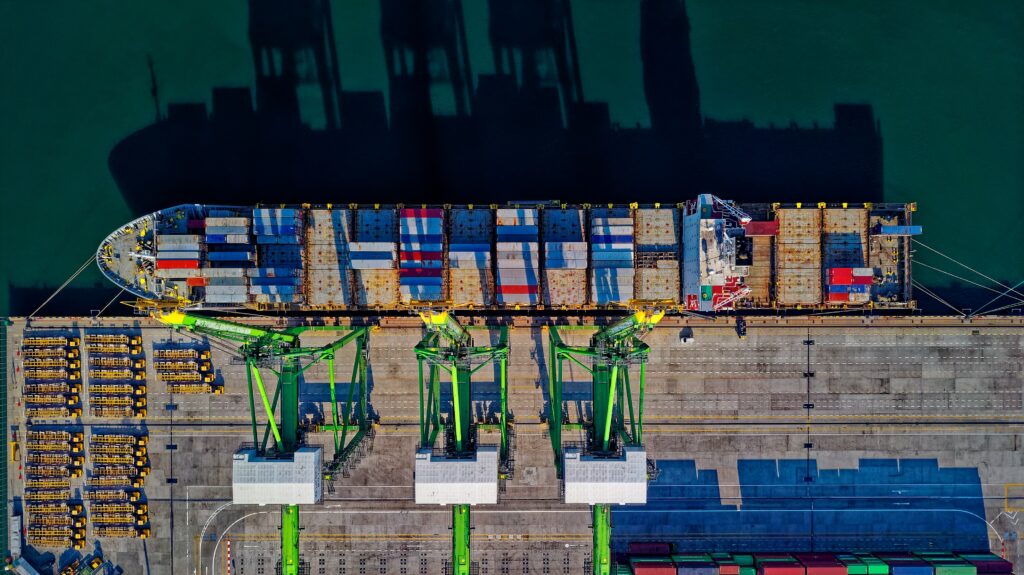What is a Trade War?
Trade wars result from two countries retaliating against each other through economic measures such as raising import tariffs or increasing the restrictions on the other country’s leading product exports.
Trade wars often evolve because one country perceives another as having unfair trading practices. These malpractices often lead to an unfair advantage for their industries in the global and domestic markets. Domestic trade unions or industry lobbyists often use their political influence to pressure lawmakers into increasing imported goods’ costs. These policies can make international products less attractive to consumers and manufacturers. This action is often the starting point for a global trade war. These economic battles also result from misunderstandings. Some countries feel they do not benefit from free trade; therefore, trade wars are usually considered a side effect of protectionism.

Understanding a Trade War
Protectionism is a critical term that defines the policy decisions undertaken by government administrations. These actions and policies are enacted as a method of restricting international trade. Nations often resort to these protectionist measures if they feel their domestic businesses and jobs are threatened by global markets.
Trade wars affect numerous aspects of an economy. A trade deficit is expected in scenarios where the country’s imports are less than the total amount of products it exports. Protectionism is often used as a tool by presidents who wish to deliver a trade surplus to the voters. The tariffs introduced work similar to tax and duty. They require compliance from the global economy; therefore, when implemented on both sides, the measures can damage both nations’ consumers and businesses.
Trade wars can be cancerous in nature meaning that conflict in one sector can affect other sectors. The problems can also spread past the two countries having the contest. There is a chance that other countries not initially involved in the trade war may be affected. This escalation of problems is a direct result of a protectionist penchant.
Trade war has detrimental effects on the trading relationship between two countries. When a trade war begins, it is clear to analysts because the measures are targeted. These policy introductions are distinct from other actions to control imports and exports. Many nations have little in common besides trade. Therefore, introducing tariffs and protectionist policies will lead to a cap on import quotas from both sides. Countries with unsteady bilateral relations will make it difficult for other nations’ businesses to prosper by setting clear product standards and providing unfair government subsidies to corporations to help them become more competitive. These actions deter outsourcing.
History of Trade Wars
Trade wars are a part of ancient history. These tactics did not first become known in modern society. These economic conflicts are as old as trade itself. History shows colonial powers had trade wars to access overseas colonies in the 17th century.
Opium Wars
The British Empire is well known historically for having long trade wars. During the 19th century, the administration faced an opium war with China. The economic battle led by the British to control the Chinese markets with their India-produced opium ran on for years. The Chinese Emperor decreed this product illegal in the country, and numerous batches of opium were confiscated. Eventually, the Chinese Emperor overturned this decree after significant pressure from the British navy.

Trump Administration Trade War
In 2018, the Trump administration introduced numerous tariffs and duties. These levies were placed on a wide range of products, from steel and aluminum to solar panels and washing machines. The nations with goods that were targeted by these sanctions included goods from the European Union (EU) and Canada. The administration also ensured these tariffs would cover China and Mexico to escalate the situation. The move was hostile to Canada, who introduced a series of temporary duties on American steel. The steel industry in America is a pillar of their economy. This action was followed by the EU imposing tariffs on American agricultural imports.
In 2019, it was estimated that tariffs on Chinese imports had cost the nation nearly $200 billion. The trade wars moved into the next gear following this as China retaliated and imposed stiff duties on American imports. The main challenge with these wars is that businesses that are importers of goods have primarily shouldered the cost of the imposed tariffs. The administrations of these nations often don’t feel the pinch. The costs are instead passed on to the consumer. Businesses respond to trade wars by protecting their profit margins and introducing higher prices.
Advantages and Disadvantages of a Trade War
Pros
A trade war’s main benefits and challenges are closely related to protectionism. The groups that support protectionism argue that if the tariffs are justified and well-crafted, they can provide local businesses with competitive advantages and shielding. Protective policies encourage suppliers and shoppers to search locally by introducing measures that block or discourage imports. This advantage has the effect of creating more employment. These policies also work well for nations experiencing a trade deficit. These painful tariffs and trade wars are considered the main tools to handle unfair or unethical trading policies in other countries.
• Shields local businesses from unfair competition due to unethical trading policies.
• Encourages consumers to buy domestic goods, therefore, improving local demand.
• Improved demand may lead to expansion and local job growth.
• Improves trade deficits by increasing exports while discouraging imports.
• Useful tool to sanction countries that enact unethical trade policies.
Cons
Those who stand against protectionist measures often argue that these measures are harmful in the long term. The tariffs and duties will eventually hurt the people they were enacted to protect. When the inevitable retaliation occurs, it will likely result in lost markets and slow economic growth. Intangible benefits such as cultural exchange are also lost. Reducing access to international markets directly leads to less consumer variety in the marketplace. Without the appropriate alternatives, there is a possibility that consumers may face shortages. A domestic substitute is often required for every imported good, which can be challenging to achieve. These policies lead to consumers having to pay what domestic suppliers request. It reduces competition and shows businesses to pay more for raw materials. This has the effect of lowering manufacturers’ profit margins. These problems can spark inflation in the local economy overall.
• This can increase the cost of manufacturing, therefore, sparking inflation
• Without a ready-made domestic substitute, there may be shortages and a lack of variety.
• Discourages two nations and their people from trading economically and culturally.
• Reduced economic growth through less access to global markets.• Negatively impacted diplomatic relations.






































